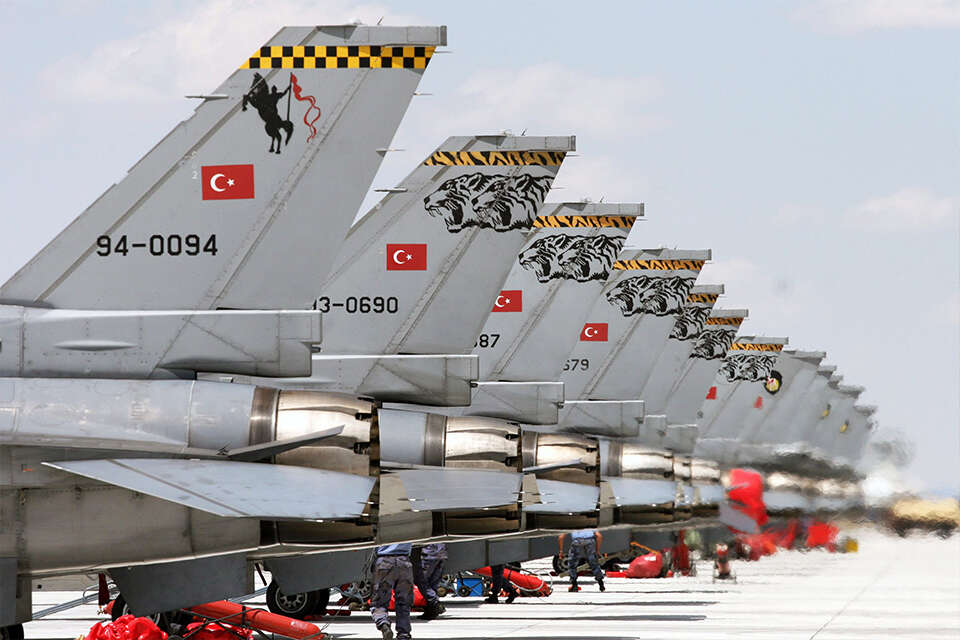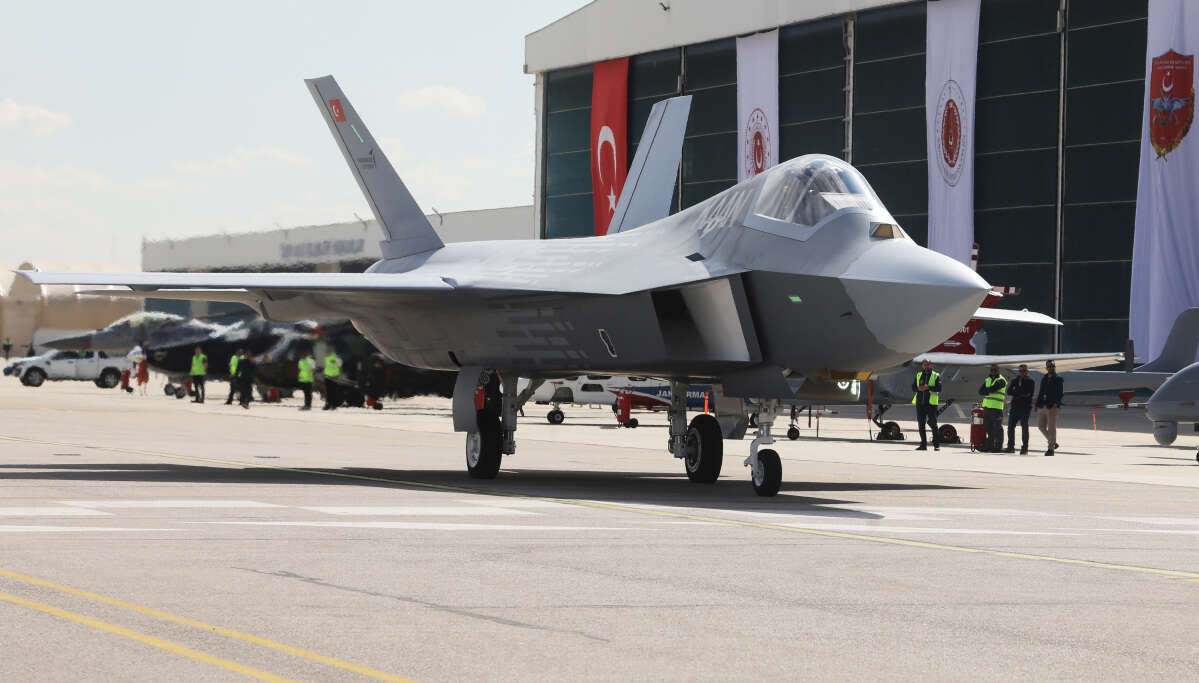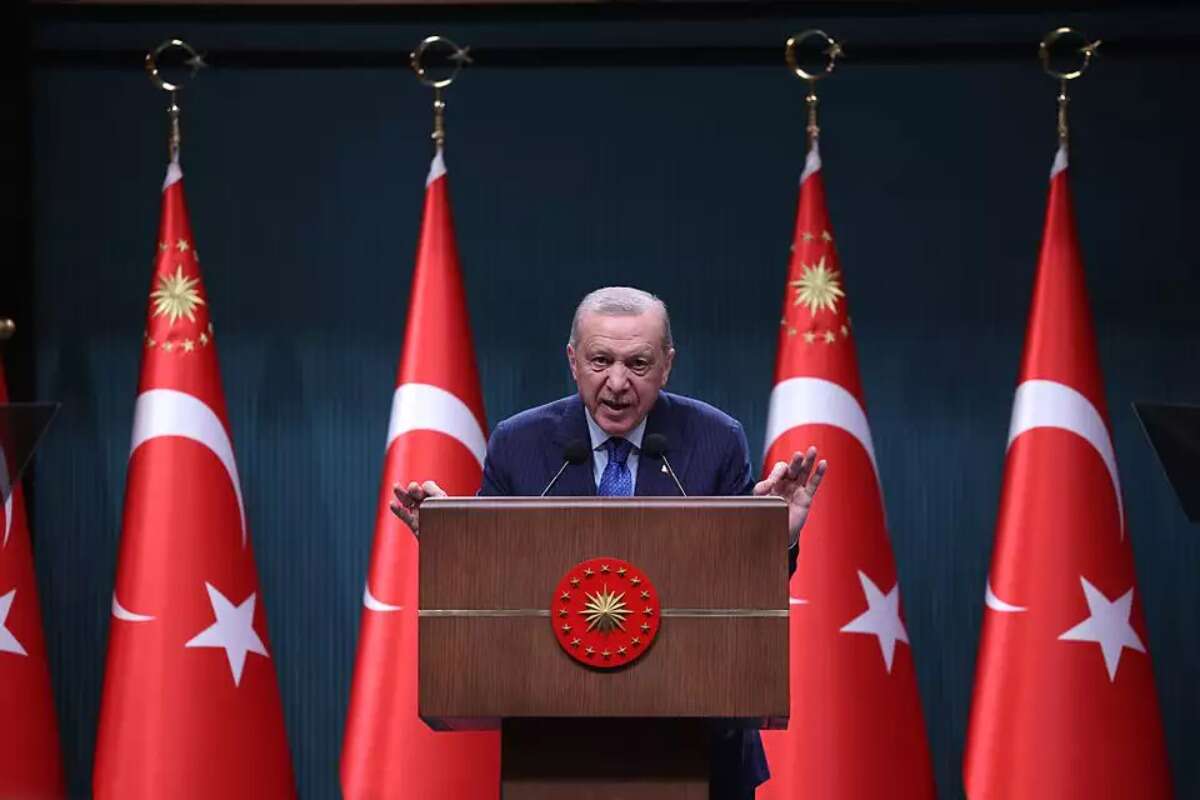A new report authored by Turkey’s National Intelligence Academy on the recent 12-day war between Israel and Iran suggests that Ankara must take a comprehensive set of steps, from bolstering military deterrence to developing a new national security architecture, in order to adjust to the latest changes in modern warfare.
Published last week, the report calls for urgent reforms to Turkey’s early warning systems, the construction of bomb shelters, and strong measures to counter potential espionage activities targeting Turkey’s defense and industrial sectors.
While Turkey has invested heavily in its defense industry over the past two decades, the report stresses that significant gaps and vulnerabilities remain.
 Regional intervention in international conflicts. Turkish Air Force jets. Photo: AP
Regional intervention in international conflicts. Turkish Air Force jets. Photo: AP
Since 2016, Ankara has emerged as a drone superpower, producing hundreds of armed unmanned systems such as the Anka and Bayraktar TB2, which have altered the balance of power in conflicts in Ukraine, Libya, Syria, and Nagorno-Karabakh.
Turkey is currently working to produce its fifth-generation stealth fighter jet, the Kaan, by 2030, as well as domestic air defense systems like the Hisar. However, its existing fighter fleet – mostly made up of F-16s- is aging rapidly.
The concern: Israeli air superiority
The report provides a detailed analysis of Israel’s air superiority, noting that the Israel Defense Forces managed to deploy 300 aircraft in a complex operation involving F-16s, F-35s, armed drones, and aerial refueling tankers. Titled “The 12-Day War and Lessons for Turkey,” the document argues that the conflict reaffirmed the critical importance of integrating manned and unmanned systems, such as drones, and modernizing Turkey’s air force arsenal.
“Throughout the war, the need for a multilayered and comprehensive air defense system also became apparent,” the report states. “Moreover, Israel’s inability to fully intercept the advanced hypersonic missiles launched from Iran, despite extensive support from its allies, highlights the necessity for Turkey to accelerate its own efforts in this domain.”
 Turkey’s new KAAN fighter jet. Photo: Getty Images
Turkey’s new KAAN fighter jet. Photo: Getty Images
The report calls on Ankara to focus on serial production and capacity building for advanced military systems, including ballistic missiles and hypersonic weapons.
“The vulnerabilities in Iran’s air defense systems underscored the critical importance of protecting strategic facilities through robust aerial defenses,” the report adds. “Particular attention should be given to low-altitude air defense systems, especially at locations housing key security bureaucracies.”
In addition, the document recommends establishing a nationwide early warning system, building well-equipped bomb shelters, including the use of underground metro stations in major cities, and taking steps to minimize civilian casualties.
